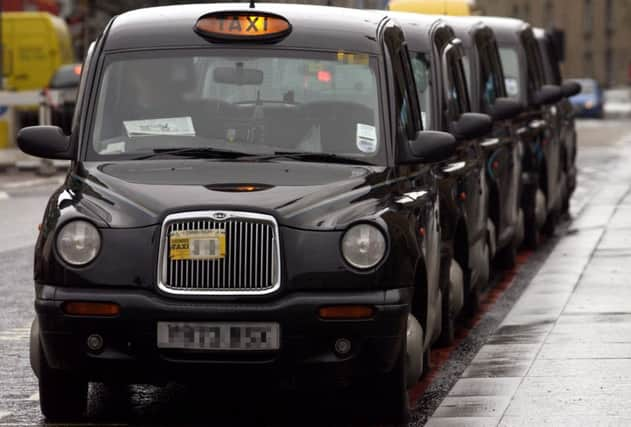Scots councils ‘spent £90m on taxis in last 3 years’


After all 32 councils were quizzed, they revealed they had run up a massive spend of £89,271,251.80 over the last three financial years.
But the true cost to the taxpayer could be much higher after several councils refused to divulge information when asked under freedom of information laws.
Advertisement
Hide AdAdvertisement
Hide AdSome councils said accessing the information would cost too much and take too many man hours while others ignored requests.
The cabs were used for transporting children to and from school and for a range of other services including social services, environmental work, transporting staff and council bosses and even for ferrying meals to pensioners.
The massive figures have seen politicians and taxpayers’ groups call on local authorities to review how they spend the money.
Glasgow City Council were the biggest spender, running up a bill of more than £15 million over 2012/13, 2013/14 and 2014/15.
Scotland’s largest local authority forked out a total of £15,023,891 on cabs with almost £13 million being spent by the council’s education services with the rest split between other departments.
South Lanarkshire Council was the second highest spender racking up a bill of £14,239,762 on cabs since 2012 with most of the costs being run up in education.
Edinburgh City Council forked out £1,865,225 while bosses at North and South Ayrshire councils racked up a combined bill of £6.8 million but East Ayrshire failed to provide figures.
Scottish Conservative local authority spokesman Cameron Buchanan MSP said: “There will always be a need for local authorities to spend some money on taxi use but the public will no doubt be shocked to hear so much of their hard-earned cash is going on this type of transport.
Advertisement
Hide AdAdvertisement
Hide Ad“Officials should be keeping a closer eye on the authorisation and use of taxis.
“With resources tight, the most economical type of transport should be used which does not leave the taxpayer out of pocket.”
West Lothian ran up a taxi bill of £12.3 million while East Lothian spent £4.8 million.
Perth and Kinross spent £9 million while Aberdeen City Council spent £6.7 million.
East Dunbartonshire’s expenditure topped £6 million while Midlothian and Fife spent over £3 million each on taxis over the three year period.
Rural council areas such as Dumfries and Galloway and Clackmannanshire both splashed out over £1 million each.
But at the bottom of the pile came Orkney, Inverclyde, Aberdeenshire who spent a total of £104,840.18 between them.
Other councils including North Lanarkshire and Angus refused to provide figures.
Advertisement
Hide AdAdvertisement
Hide AdEben Wilson of Taxpayer Scotland said: “Taxpayers have no way of knowing if this money is being well spent.
“Our councils should be made to put a full analysis, to an agreed format, of these huge amounts of money into the public domain on their websites as a legislative obligation.
“We pay for these taxis, it is only fair that we should know what these millions have been spent on. It must not be assumed that these costs cannot be curtailed to help create jobs and growth.”
A Glasgow City Council spokesman said: “The vast majority of these costs for each financial year relates to the transport of pupils and young people with additional support needs to their school or placement.
“It should be borne in mind that individual needs are matched to a specialist school which is often not close to the child’s home.”
A South Lanarkshire Council spokeswoman said: “The costs incurred are important to help the most vulnerable people the council supports on a daily basis.
“This includes children with additional support needs, those under child protection orders, adults with learning difficulties who attend college or day care and older people in residential accommodation who have hospital appointments.”